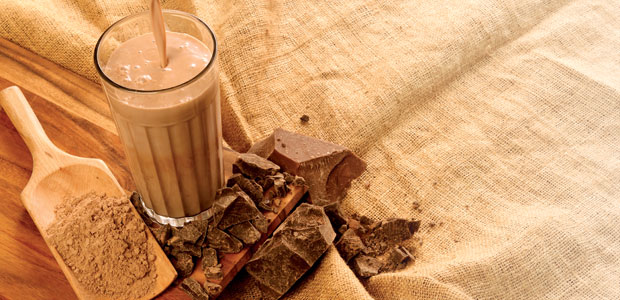Advertisement
Ch…ch…ch… Chocolate
The elite superfood

Feel guilty no more. Chocolate has been reappraised as an elite superfood: Harvard studies and candy merchants alike are excitedly touting its health benefits. But can these claims be too good to be true?
Before you reach for that candy bar, it’s important to realize that health benefits are found in unadulterated chocolate, such as raw cocoa powder and cacao nibs.
We are accustomed to eating naturally bitter cacao in its sweetened, processed form. But many nutrients are lost during chocolate processing. That’s why making a drink with unprocessed, unsweetened cacao is an ideal way to reap chocolate’s benefits. Most health food stores carry organic cocoa powder, and many stock raw cacao nibs for healthy, portable snacking. These nibs are the centre of the cacao bean, found within the large pod fruit of the Theobroma cacao tree.
The Virtues of Cacao
Cacao contains more than 300 phytonutrients, including high levels of antioxidants, vitamins, minerals, and amino acids. In its purest form, cacao can help guard against heart disease and cancer, the two leading causes of death in North America. The polyphenols abundant in cacao are among the most effective of antioxidants, protecting our cells from damage by free radicals and helping us stay young and vital.
Cacao is also rich in flavonols, shown to lower blood pressure and improve blood flow, benefitting the circulatory system, brain function, and memory.
Even though processed chocolate contains fats such as stearic and oleic acids, studies indicate that they do not increase low-density lipoprotein (LDL) cholesterol levels and are safely consumed in moderation.
Nature’s Antidepressant
Also good for heart and brain function is magnesium, plentiful in cacao, as are B vitamins, which support brain health, too. The mood elevation associated with eating chocolate is probably due to these nutrients, as well as the neurotransmitters and monoamine oxidase inhibitors (MAOIs), which occur naturally in cacao. Additionally, the low amount of caffeine in cacao acts as a gentle stimulant; 1 oz (25 g) of dark chocolate contains about 20 mg of caffeine, the equivalent of 1 cup (250 mL) of green tea. Think of chocolate as nature’s antidepressant.
With all those mood- and health-supporting components, chocolate truly deserves its place as the emblematic food of Valentine’s Day! To ensure you’re getting more goodness and less sugar, dairy, and other additives, choose organic dark chocolate with at least 70 percent cocoa content. It’s a divinely delicious gift of health, longevity, and love.




